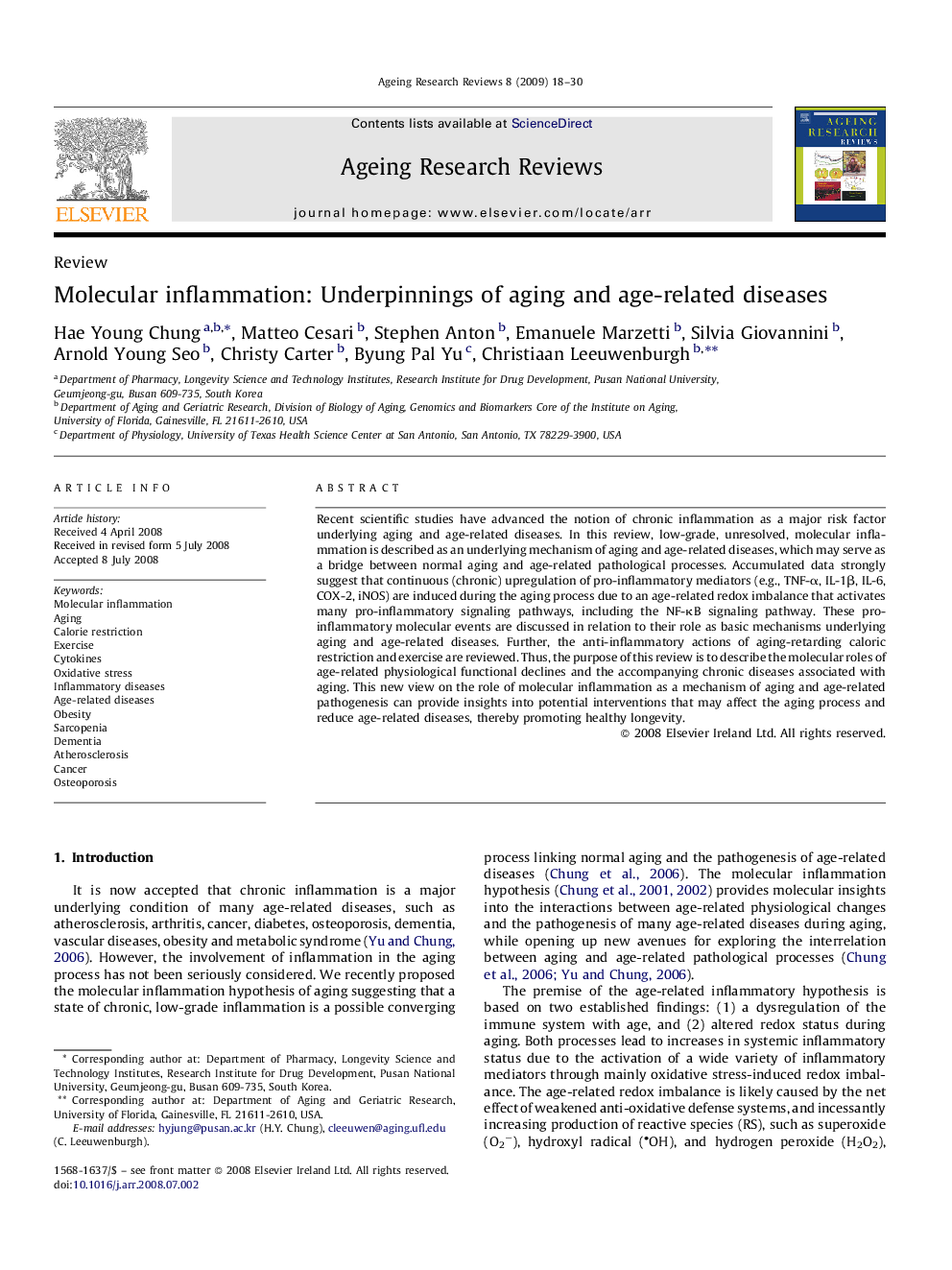| Article ID | Journal | Published Year | Pages | File Type |
|---|---|---|---|---|
| 1902451 | Ageing Research Reviews | 2009 | 13 Pages |
Recent scientific studies have advanced the notion of chronic inflammation as a major risk factor underlying aging and age-related diseases. In this review, low-grade, unresolved, molecular inflammation is described as an underlying mechanism of aging and age-related diseases, which may serve as a bridge between normal aging and age-related pathological processes. Accumulated data strongly suggest that continuous (chronic) upregulation of pro-inflammatory mediators (e.g., TNF-α, IL-1β, IL-6, COX-2, iNOS) are induced during the aging process due to an age-related redox imbalance that activates many pro-inflammatory signaling pathways, including the NF-κB signaling pathway. These pro-inflammatory molecular events are discussed in relation to their role as basic mechanisms underlying aging and age-related diseases. Further, the anti-inflammatory actions of aging-retarding caloric restriction and exercise are reviewed. Thus, the purpose of this review is to describe the molecular roles of age-related physiological functional declines and the accompanying chronic diseases associated with aging. This new view on the role of molecular inflammation as a mechanism of aging and age-related pathogenesis can provide insights into potential interventions that may affect the aging process and reduce age-related diseases, thereby promoting healthy longevity.
